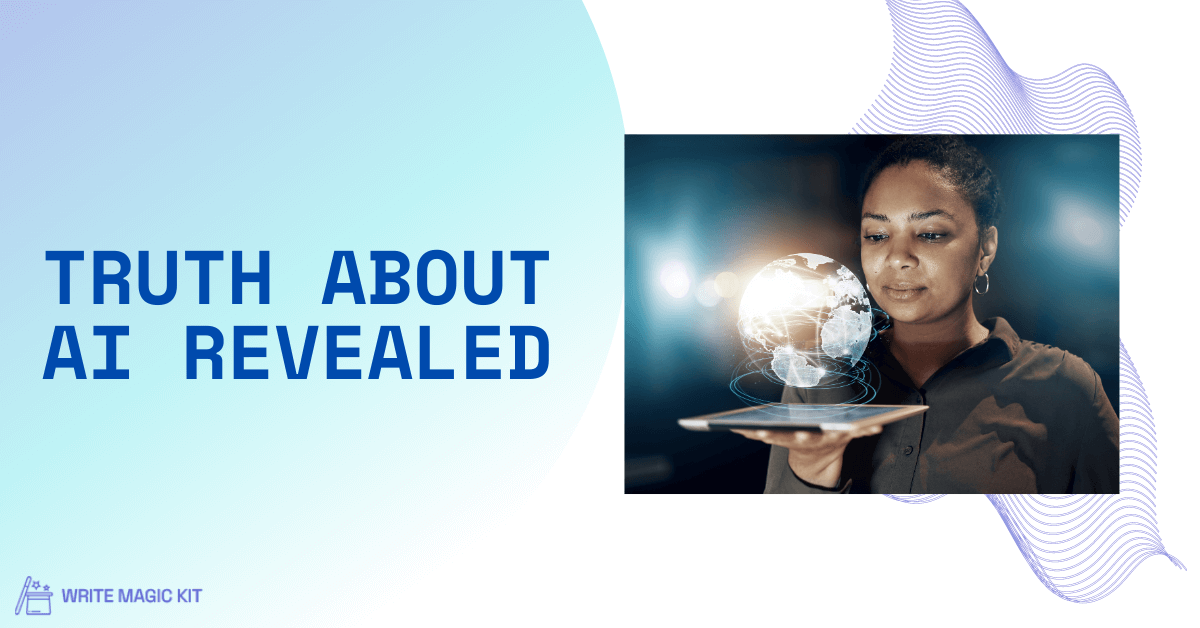In today’s rapidly evolving technological landscape, few topics spark as much controversy and excitement as artificial intelligence (AI). From its ubiquitous presence in our daily lives to its potential to reshape entire industries, AI is a force to be reckoned with. But amidst the hype and speculation, what is the reality behind this powerful technology? Join us as we explore five fascinating insights that shed light on the true nature of AI and its implications for our world.
The Invisible Hand: AI’s Subtle Influence
In a world where AI is seamlessly integrated into our daily routines, its presence often goes unnoticed. From smart assistants guiding our decisions to algorithms shaping our online experiences, AI has become an invisible but integral part of modern life. Yet, beyond its role in convenience and efficiency, AI is also tackling some of humanity’s most pressing challenges. From aiding farmers in optimizing crop yields to revolutionizing urban planning, AI’s impact extends far beyond the digital realm.
However, as AI continues to permeate every aspect of society, questions arise about its ethical implications and potential consequences. How much control are we willing to relinquish to AI, and what safeguards must be put in place to ensure it serves humanity’s best interests?
The Green Revolution: AI’s Role in Climate Action
As the specter of climate change looms large, AI emerges as a powerful ally in the fight against environmental degradation. By leveraging vast amounts of data and sophisticated algorithms, AI enables us to better understand and address complex environmental challenges. From optimizing energy consumption to predicting natural disasters, AI holds the key to mitigating the impacts of climate change and fostering a more sustainable future.
Yet, even as AI offers innovative solutions to environmental problems, concerns linger about its own ecological footprint. As AI systems grow increasingly complex and resource-intensive, efforts to develop eco-friendly alternatives become imperative. How can we harness the potential of AI without exacerbating environmental degradation?
Learning from Experience: The Evolution of AI
At the heart of AI lies the concept of machine learning, where algorithms learn from vast datasets to make predictions and decisions. As a child learns from experience, AI algorithms draw insights from real-world examples to improve their performance over time. Yet, the quality and diversity of these datasets pose significant challenges, raising questions about bias, fairness, and transparency in AI systems.
Despite these hurdles, collaborations and initiatives aimed at sharing datasets and fostering collaboration are underway, paving the way for more inclusive and ethical AI development. But as AI continues to evolve, so too must our efforts to ensure it serves the common good.
Read More: OpenAI Sora: The Future of AI Video Generation (Text-to-Video) is Here
Unmasking the Illusion: The Truth About Deepfakes
In an era of digital deception, deepfakes have emerged as a potent tool for manipulating reality. Using AI algorithms to create convincing yet fabricated images and videos, deepfakes blur the line between truth and fiction. While AI can aid in detecting these deceptive creations, the arms race between creators and detectors underscores the challenges of combating misinformation in the digital age.
As deepfakes become increasingly sophisticated, the need for robust detection mechanisms and media literacy becomes more urgent than ever. How can we navigate the murky waters of digital authenticity in an age of rampant misinformation?
Beyond the Data: AI’s Human Limitations
Despite its remarkable capabilities, AI remains fundamentally limited in its understanding of the human experience. While AI excels at processing vast amounts of data and making predictions, it lacks the nuanced understanding and empathy that define human cognition. As AI becomes more pervasive, questions arise about its ability to comprehend human emotions, intentions, and values truly.
Ultimately, the relationship between humans and AI is a complex and evolving one, shaped by ethical, social, and philosophical considerations. As we navigate this brave new world of AI, it’s essential to recognize its limitations and ensure that it serves as a tool for human empowerment rather than a substitute for human agency.
Read More: Gemini vs. GPT-4: Unraveling Google’s Latest AI Breakthrough
Conclusion
As we conclude our exploration of the enigmatic world of artificial intelligence, it’s clear that AI is far more than just a buzzword or a futuristic concept—it’s a powerful force shaping the present and the future. From its subtle influence in our daily lives to its pivotal role in addressing global challenges, AI’s impact is undeniable. However, amidst the excitement and optimism, it’s essential to approach AI with a critical eye and an awareness of its limitations.
While AI holds tremendous potential to improve efficiency, drive innovation, and enhance our quality of life, it also raises complex ethical, social, and environmental questions that demand careful consideration. As stewards of this transformative technology, it’s incumbent upon us to ensure that AI is developed and deployed responsibly, with a keen eye toward equity, transparency, and human well-being.
Ultimately, the future of AI lies not just in technological advancements, but in our collective ability to harness its power for the greater good. By fostering collaboration, promoting ethical standards, and prioritizing human-centric values, we can unlock the full potential of AI as a force for positive change in our world. So let us embrace the possibilities, navigate the challenges, and together, shape a future where AI serves as a tool for empowerment, enlightenment, and progress.

